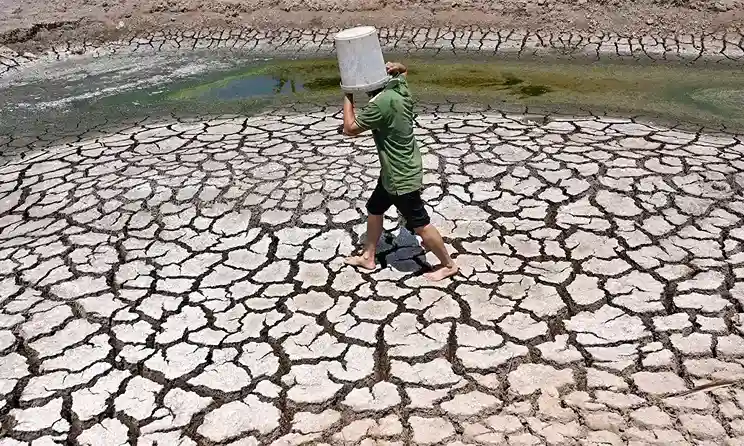Climate Change Report Forecasts 19% Decline in Average World Income Over Next 26 Years

According to a recent analysis of the financial implications of climate change, over the next 25 years, global revenue may be 19% less than it would be in the absence of global warming. Published in the journal Nature, the research analysed 40 years of climate-driven impacts on global GDP to project future economic growth trends.
(Also read The Iranian Military Asserts Readiness to Counter any Potential Israeli Aggression.)
Examining the Projected Decline in Average World Income
Regardless of future emissions decisions, the analysis projects a decline in average world income over the course of the next 26 years. This translates to a significant annual loss of about $38 trillion through 2049. Countries like the United States and Germany may experience an average income drop of 11%, while France may see a 13% decline.
However, despite the overall decrease, the projected growth in global GDP may still lead to individual income growth in many instances. The primary threat to the economy comes not from individual extreme weather events such as hurricanes or wildfires but from the gradual rise in average temperatures, affecting labour output and crop yields.
Max Kotz, the study’s lead author, emphasised that average warming and overall temperature increases drive the majority of future damages due to their unprecedented nature compared to historical records. Poorer countries are expected to suffer greater declines in average incomes than wealthier nations, with regions near the equator facing the most severe impacts, while some areas near the poles may see average benefits.

The study identifies the projected economic damage as “committed” based on irreversible historical emissions and plausible future emissions trajectories. However, the predicted cost of global mitigation efforts to keep warming below the 2-degree Celsius threshold is already greater than the economic loss.
Scholars emphasise the economic justification for mitigating harm, especially in the second half of the century when the impacts of climate change are expected to intensify. They emphasise the clear benefits of mitigation from an economic perspective, reinforcing findings from previous studies.
LATEST NEWS
DISCOVER MORE






